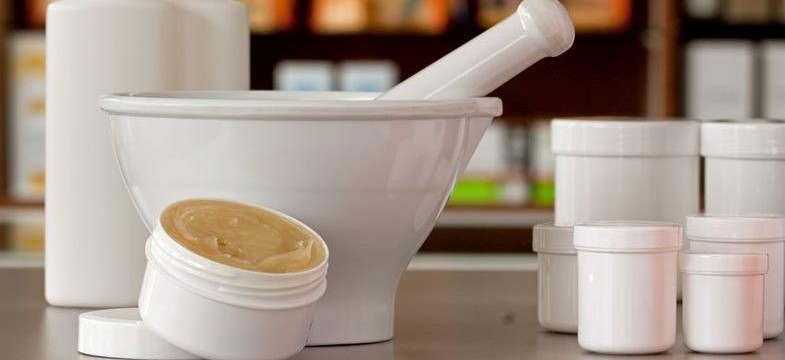Vitamin B12 Cream: The Rigiverderm® Case Study
In 2009, the German ARD broadcaster made and released the program ‘Healing unwanted – how pharmaceutical companies block a medicine’ (German: Heilung unerwünscht – wie Pharmakonzerne ein Medikament verhindern), regarding hype about vitamin B12 creams. The documentary claimed that there were huge health benefits to be achieved in the battle against eczema and psoriasis through the use of the vitamin B12 cream Rigividerm® (later renamed Mavena® B12 Salbe), and that the cream was however being blocked by pharmaceutical companies. According to clinical studies, the cream has achieved just as good or even better effects than other alternatives, has been scientifically proven and is a particularly healthy alternative to cortisone. The documentary gave the impression that vitamin B12 is a miracle cure, which triggered a wave of interest in manufacturers and pharmacies across Germany.
The program caused a small scandal, described by critics as false advertising; the director responsible lost his job as a consequence and the manufacturer Regeneratio Pharma had to change the name of the product from Rigividerm® to Mavena B12 Salbe®. Today, the vitamin B12 cream is available directly from the manufacturer under the name Regeneratio B12® Salbe, whilst delivery of the Maverna product is ‘not available’ for unknown reasons. There are also numerous imitations now available containing the same or very similar ingredients of cyanocobalamin and avocado oil.
Today the question remains: does vitamin B12 cream really help? While its efficacy remains controversial, this article will give an overview of how the cream works in theory, the scientific standpoint and the results/experiences of use.
How Does Vitamin B12 Cream Work?
Vitamin B12 is a nitric oxide (NO) scavenger: it neutralises nitric oxide radicals and thus reduces what is known as nitrosative stress, which is responsible for a variety of symptoms and certain skin diseases. Especially for eczema and psoriasis, nitrogen oxide is considered to be the cause of unpleasant inflammations and skin changes.
Whilst B12’s role as an effective NO scavenger is well recognised when the vitamin is administered internally via vitamin B12 dietary supplements, doubts remain as to how effective it is when used externally directly on the skin (1).
How Well Proven are the Effects of Vitamin B12 Cream?
Vitamin B12 cream has been tested in clinical studies, which were carried out in part at universities and by recognised dermatologists, before being published by renowned newspapers (2, 3). The studies were sufficient enough for scientific purposes, but did not fit the high requirements of studies for medicinal approval.
The studies were only carried out on small trial groups (between 13 and 49 participants) and, with the exception of one study, were only carried out ‘blind’ – meaning that even though the participants did not know if they were receiving B12 cream or a placebo, the researchers did. This gave the test the characteristic of a preliminary study – however this is often the extent to which a therapeutic cream/balm is tested before it is sold; many other supplements on the market are not tested more. Plus, a comprehensive study is often too expensive for small manufacturers to afford.
The biggest criticism of the studies that have been conducted is that they were carried out by the manufacturers themselves. Whilst a lack of independent studies on medicines is fairly common, this discredited the dermatologists involved, who were accused of bias and of being ‘bought’ by the manufacturer.
Despite this, all studies were in agreement about the therapeutic effects of B12 cream, which worked significantly better than the placebo/was comparable with other available creams. However, the small number of patients in the studies makes it difficult to draw any definitive conclusions.
The Most Important Study on Vitamin B12 Cream
The most important and highest-quality study on the subject was conducted by Dr Markus Stücker at the University of Bochum. Published in the British Journal of Dermatology, it included 49 subjects with atopic eczema and was the only completely randomised, placebo-controlled and multi-centre study in this area (4).
The patients received two creams each, to be applied to different parts on the body. One was vitamin B12 cream, the other an identical cream with the vitamin B12 content removed. The eczema rating system, otherwise known as the atopic dermatitis score (SASSAD score) improved with the vitamin B12 cream by around 55 points, whilst the placebo cream only saw improvements of 29 points. Scientifically, this is a significant difference and majorly supports the effectiveness of the cream. The study was able to draw the conclusion that B12 was responsible for the change, as the placebo cream was otherwise identical.
Unfortunately, the size of the study here is once again too small to document the effect of B12 cream with statistical certainty.
Do Patients Recommend Vitamin B12 Cream?
Patient reactions to vitamin B12 cream are very mixed. Whilst some rejoice in relevant online forums about the way the lotion has finally relieved their discomfort, others argue that the cream is completely ineffectual (5). Some even report their condition worsening, which can presumably be attributed to a reaction to the other ingredients: avocado oil and citric acid.
Vitamin B12 cream is thus surely no miracle cure; at present, the extent of its effect cannot be claimed with any certainty. Whilst some swear by the therapeutic strength of the cream and herald it as an alternative to cortisone, others consider it a very normal cream with no particularly special effects.
Vitamin B12 Cream and its Ingredients
Most vitamin B12 creams available are based on avocado oil, which in itself has soothing qualities, though it has also been known to trigger cross-reactivity: those who react to walnuts, kiwis, bananas or latex may experience redness and itchiness after applying the cream. At present, it is unclear how much these allergies influence the effects of the cream and how responsible they are for causing mixed reactions.
The original recipe for 100g of B12 cream is as follows:
- 0.07 g vitamin B12 (cyanocobalamin)
- 46 g avocado oil
- 45.42 g water
- 8 g methyl glucose sesquistearate
- 0.26 g calcium sorbate
- 0.25 g citric acid
Vitamin B12 and its Effects on the Skin
Some researchers consider the use of vitamin B12 for skin conditions to be promising, but refer here to its use internally (6). The effectiveness of B12 cream when applied externally requires further research. Ultimately, in individual cases, you can only really know if B12 cream will help by trying it out for yourself.
Sources
- Dr. Claudia Schöllmann, Dr. Joachim Kresken. Vitamin B12-Salbe gegen Neurodermitis und Psoriasis. DermoTopics, Ausgabe 1, 2010, ID-Institute for Dermopharmacy GmbH, Köln http://www.dermotopics.de/german/ausgabe1_10_d/vitaminb12salbe1_10_d.html
- Stücker M., Memmel U., Hoffmann M., Hartung J., Altmeyer P. Vitamin B12 Cream Containing Advocado Oil in the Therapy of Plaque Psoriasis“. in Dermatology 2001;203:141-147
- Ronald Januchowski, D.O., „Evaluation of Topical Vitamin B12 for the Treatment of Childhood Atopic Dermatitis“, Regional Family Medicine Residency Program, Spartanburg (South Carolina, USA)
- Stücker M et al: Topical vitamin B12 – a new therapeutic approach in atopic dermatitis-evaluation of efficacy and tolerability in a randomized placebo-controlled multicentre clinical trial. Br J Dermatol 2004; 150 977-983
- http://www.psoriasis-netz.de/community/forum/85-mavena-b12-salbe-ehem-regividerm/
- Peter Marko, Franz Marty. Vitamin B 12 und Hautleiden. PrimaryCare 2006, 6: Nr. 19-20, Schweizerischer Ärzteverlag AG, Muttenz http://www.primary-care.ch/docs/primarycare/archiv/defr/2006/2006-23/2006-23-251.PDF


